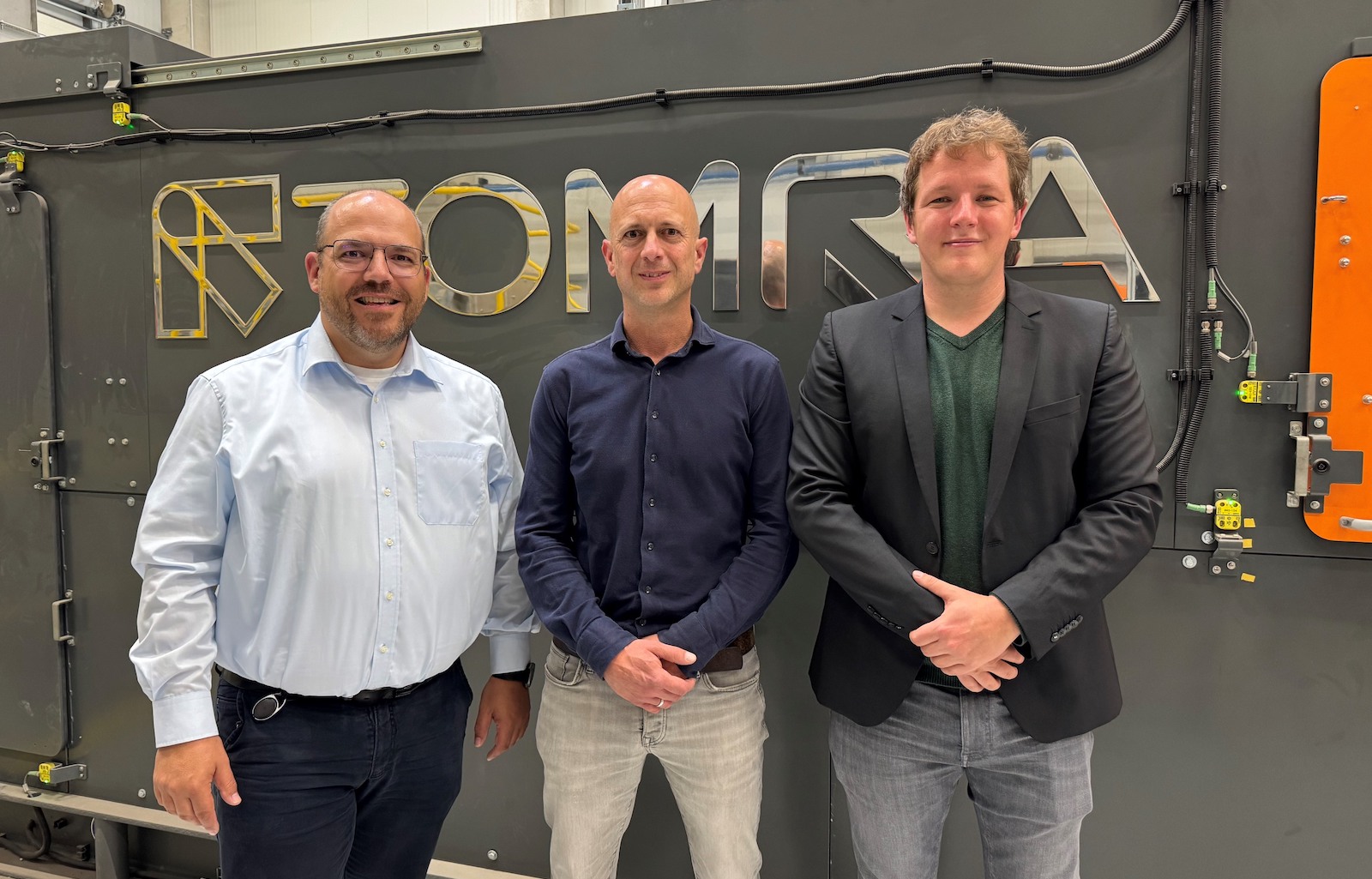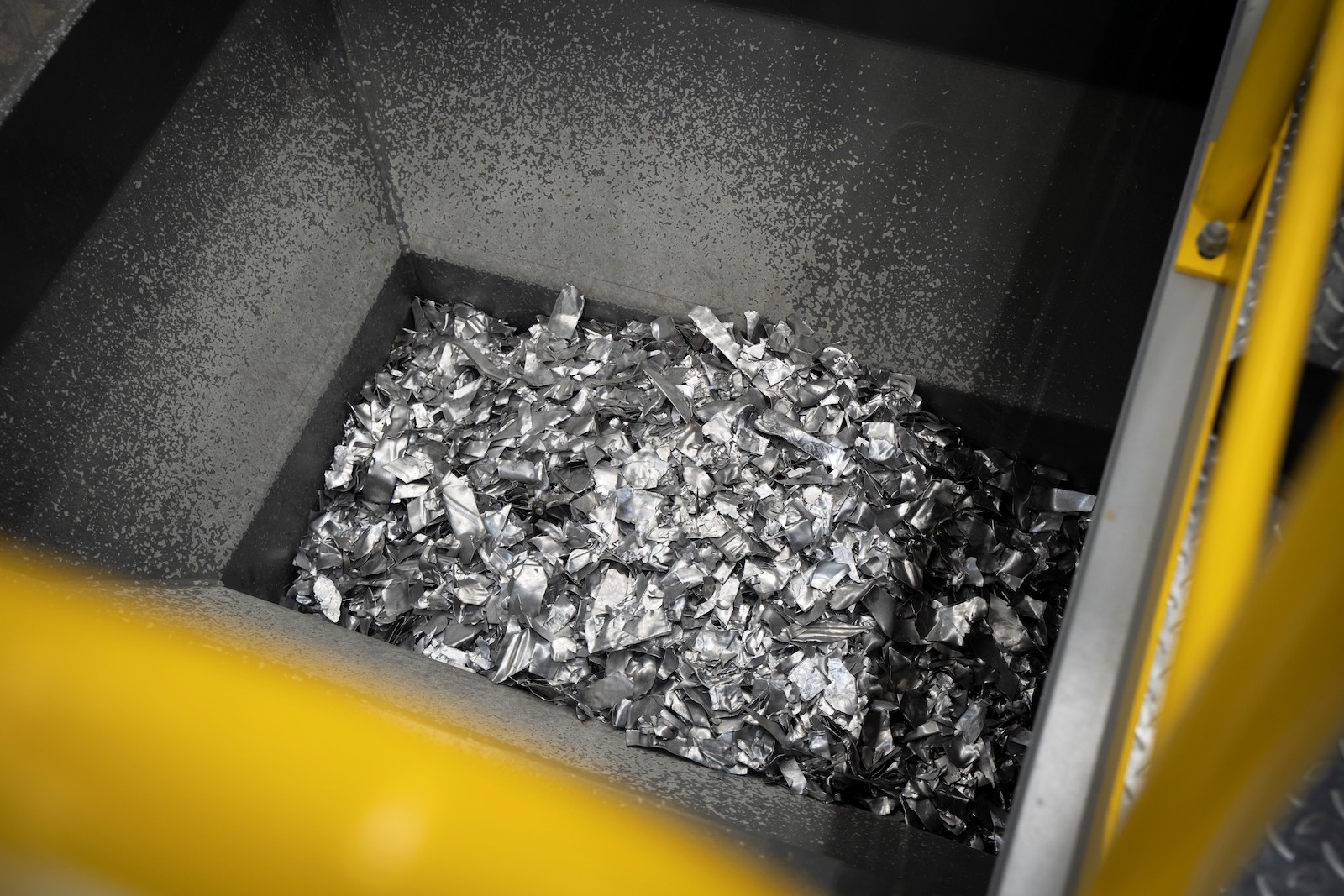
Novelis and TOMRA Recycling presented groundbreaking advancements in aluminum recycling technologies via a new webinar titled, “From AI to Dynamic LIBS: How new sorting technologies drive growth in aluminum recycling,” hosted by industry experts Frank van de Winkel, business development manager – Metal, and Tom Jansen, head of the Metals segment, TOMRA; and Wilhelm Kiefer, metal optimization lead at Novelis.
Greater aluminum scrap utilization being a major focus of the industry due to the need to significantly lower CO2 emissions and ensure stable supply of raw material. Therefore, the webcast discusses the the latest sorting technologies for aluminum scrap — such as x-ray transmission (XRT), dynamic laser-induced breakdown spectroscopy (LIBS), and deep learning — and how they optimize sorting processes, enhancing the purity of aluminum scrap. It also looks at the considerable business opportunities these innovations present for aluminum recyclers and processors.
“We were delighted to welcome attendees from across the globe to our recent webcast,” said van de Winkel. “It was a great opportunity to gather feedback from the industry on the challenges facing aluminum recyclers and post-shredder operators today, while at the same time demonstrating the unmatched levels of material separation available on the market today using a combination of XRT, Dynamic LIBS, and deep learning technologies. Together with Novelis, we were able to demonstrate the realities of the paradigm shift toward a more sustainable and efficient future for scrap recycling, and we look forward to continuing this important dialogue.”

Key Takaways
Scrap technologies and initiatives are supporting the aluminum industry’s significant shift toward sustainability. Companies like Novelis, with its 3×30 vision to advance aluminum as the material of choice with circular solutions, are at the forefront of this transformation, aiming to maximize circularity and shape a more sustainable world.
The webcast pointed to the need to maximize both the utilization of aluminum scrap and the capacity for high scrap input in production and recycling processes. Success hinges not just on incoming material quality, but also on effectively generating the necessary scrap qualities. Consequently, material quality is emerging as a central focus in product development and operational strategies. Emerging technologies include innovations, such as AUTOSORT™ PULSE (a Dynamic LIBS solution) and GAINnext™ (a deep-learning-based AI solution).
TOMRA and Novelis also shared findings from various test results conducted at TOMRA’s Test Center and in the field, highlighting a successful reduction of individual elements in Twitch using different sorting technologies. The optimal sequence for the best overall results was found to be XRT first, then deep learning, followed by Dynamic LIBS. From 100% Twitch — a widely available yet challenging scrap type due to its complex composition — 40% of wrought aluminum was successfully extracted as exceptionally high-quality 5xxx and 6xxx alloys. The test results further highlight the future potential for recovering a broader range of aluminum alloys, including the 2xxx, 3xxx, 7xxx, and 8xxx series.
The webcast concluded with a call to action for the industry to implement optimized test sequences to enhance material digestibility and prioritize quality in production processes for improved outcomes. The ongoing innovation in scrap recycling, from processing to designing environmentally friendly alloys, is propelling the industry toward a circular economy where products are designed with recyclability in mind from the outset.
Access the full webcast recording here.
